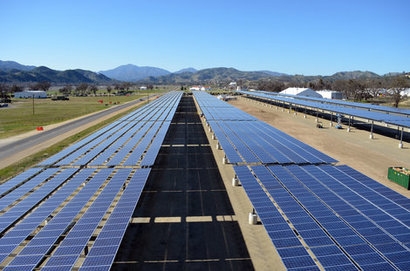
The report examined questions asked two months ago by US Energy Secretary Rick Perry concerning the reliability and market rules of the US electric power grid. Analysis Group found that market forces – primarily low-cost natural gas and flat demand for electricity – has been causing some coal and nuclear power plants to retire, not state and federal policies supporting renewable energy development. The report finds that the changing electricity resource mix poses no threat to reliability of the nation’s power system.
Perry launched a 60-day review of “critical issues” on the grid on 14th April. National business groups Advanced Energy Economy (AEE) and American Wind Energy Association (AWEA) commissioned Analysis Group to answer independently the questions Perry raised. The Analysis Group report has now been submitted to the US Department of Energy to inform its review.
“Recently, some have raised concerns that current electric market conditions may be undermining the financial viability of certain conventional power plant technologies (like existing coal and nuclear units) and thus jeopardizing electric system reliability” the report states. “In addition, some point to federal and state policies supporting renewable energy as a primary cause of such impacts. The evidence does not support this view.”
Susan Tierney, senior advisor, Analysis Group, and one of the authors of the report, added that the transformation now under way in the electric power system is driven primarily by market forces. Low natural gas prices, technology changes, and flat demand for electricity have been putting financial pressure on and leading to the retirement of older, less economic power plants. This is a natural consequence of market competition. The result is a more diverse set of energy resources on the grid that is being capably managed in a way that provides reliable electric power.
Fundamental market forces – flat demand for electricity, low natural gas prices since the mid-2000s and the addition of significant amounts of highly efficient new gas-fired resources since 2000 – are primarily responsible for altering the profitability of many older, merchant generating assets in the parts of the country with organised wholesale competitive markets. These market fundamentals are producing savings for consumers.
Factors such as rapid growth in deployment of advanced energy technologies, and state policies supporting such technologies also contribute to reducing the profitability of less economic assets, but such factors are secondary to market fundamentals in causing financial pressure on merchant plants without long-term power contracts.
The retirement of aging resources is a natural element of efficient and competitive market forces, and where markets are performing well, these retirements mainly represent the efficient exit of uncompetitive assets.
Many advanced energy technologies can and do provide reliability benefits by increasing the diversity of the system and by providing important reliability services to the grid. The addition of newer, technologically advanced, and more efficient natural gas and renewable technologies is rendering the power systems in this country more, rather than less, diverse.
Given the many attributes associated with a reliable electric system, the term "baseload resources" is an outdated term in today’s electric system which depends upon a wide variety of resources to provide essential reliability services and is seeing gas-fired resources and renewable capacity together providing both around-the-clock power and the flexibility to cycle and ramp as needed to meet and sustain bulk power system reliability objectives.
For additional information:
Electricity Markets, Reliability and the Evolving US Power System report

